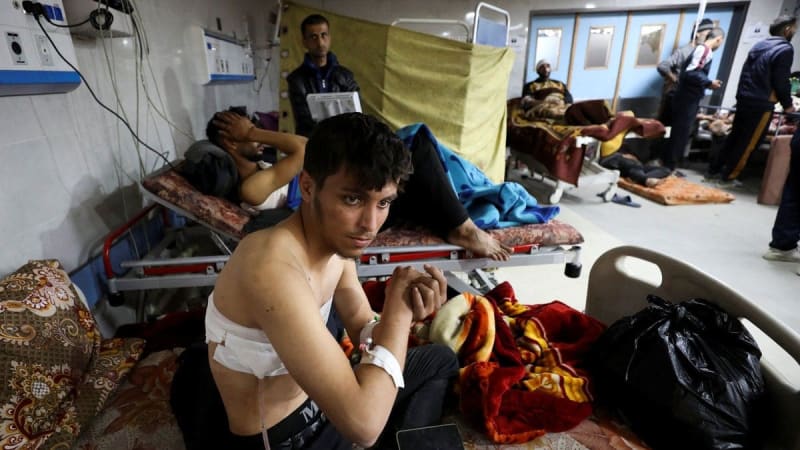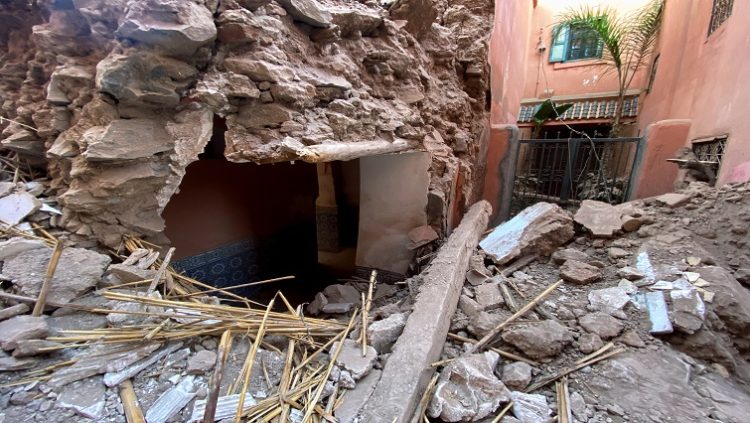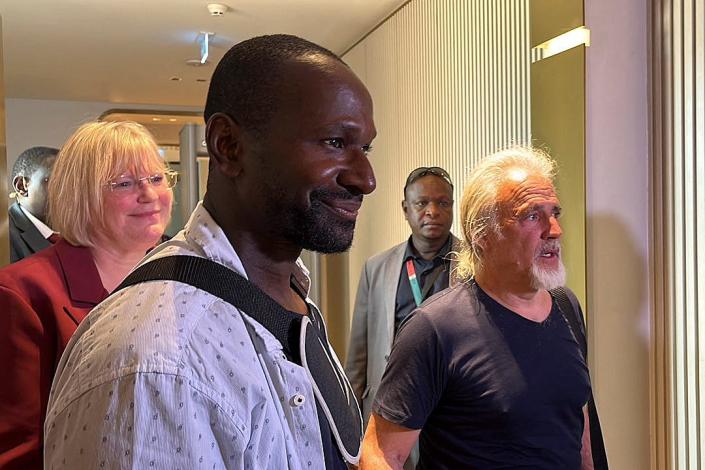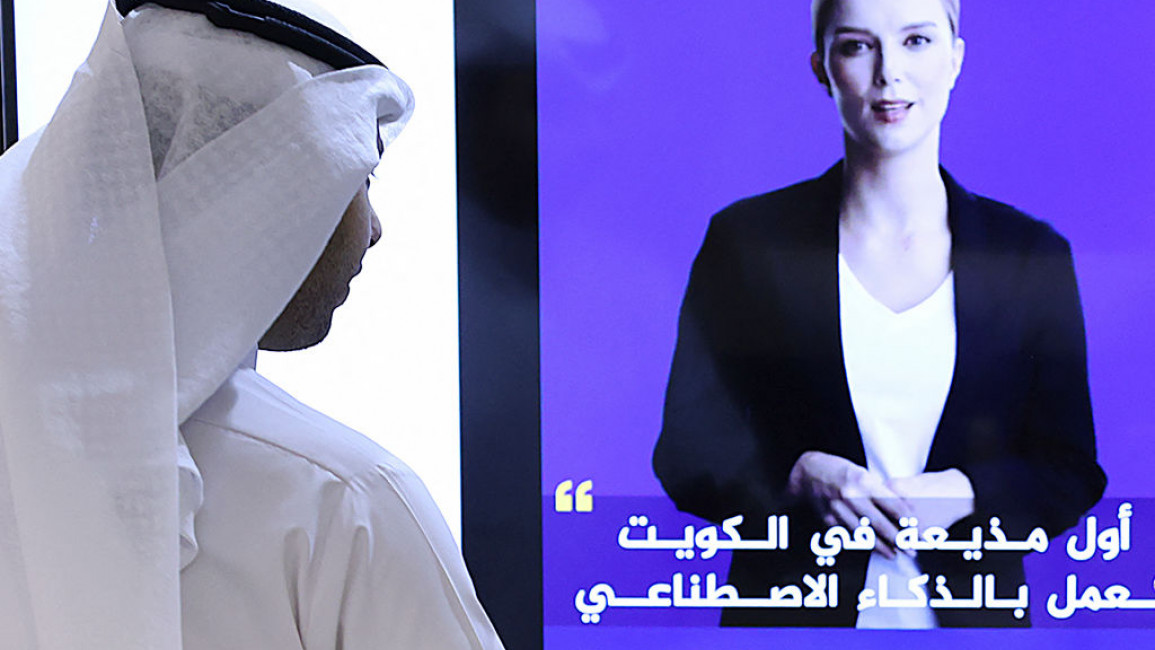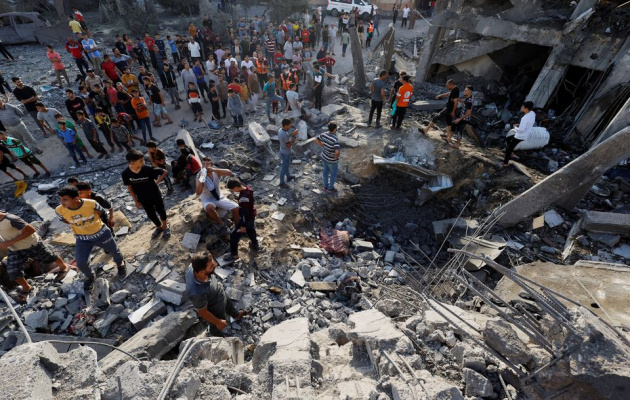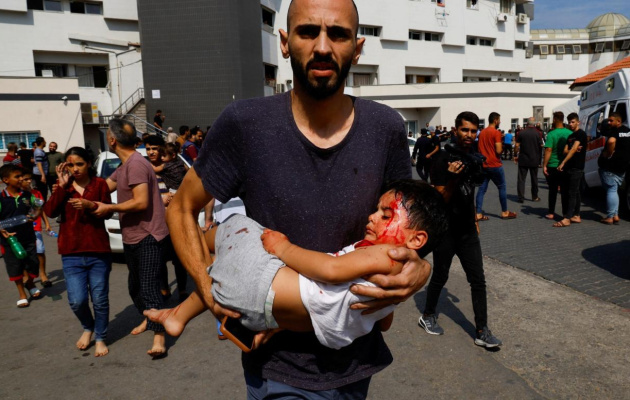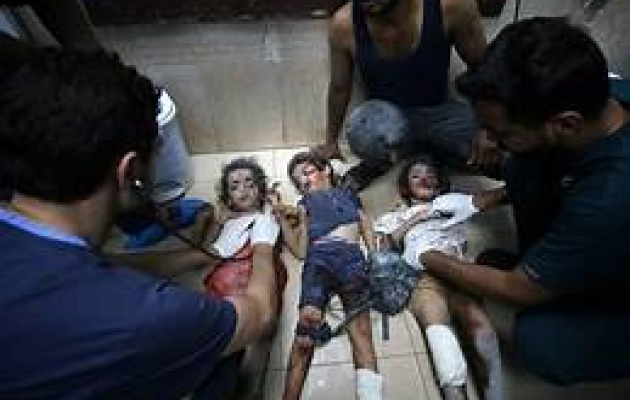Home
Gunfire accounted for 80% of wounds at hospital from aid convoy bloodshed, Doctor
- Details
- Written by northsouth
- Category: content
- Hits: 575
By WAFAA SHURAFA and BASSEM MROUE
RAFAH, Gaza Strip — The head of a Gaza City hospital that treated some of the Palestinians wounded in the bloodshed surrounding an aid convoy said Friday that more than 80% had been struck by gunfire, suggesting there was heavy shooting by Israeli troops.
At least 115 Palestinians were killed and more than 750 others injured Thursday, according to health officials, when witnesses said nearby Israeli troops opened fire as huge crowds raced to pull goods off an aid convoy. Israel said many of the dead were trampled in a crowd surge that started when desperate Palestinians in Gaza rushed the aid trucks. Israel said its troops fired warning shots after the crowd moved toward them in a threatening way.
Dr. Mohammed Salha, the acting director of Al-Awda Hospital, told The Associated Press that of the 176 wounded brought to the facility, 142 had gunshot wounds and the other 34 showed injuries from a stampede.
He couldn’t address the cause of death of those killed, because the bodies were taken to government-run hospitals to be counted.
Dr. Husam Abu Safyia, director of Kamal Adwan Hospital, said the majority of the injured taken there had gunshot wounds in the upper part of their bodies, and many of the deaths were from gunshots to the head, neck or chest.
The bloodshed underscored how the chaos of Israel’s almost 5-month-old offensive has crippled the effort to bring aid to Gaza’s 2.3 million Palestinians, a quarter of whom the United Nations says face starvation.
The U.N. and other aid groups have been pleading for safe corridors for aid convoys, saying it has become nearly impossible to deliver supplies in most of Gaza because of the difficulty of coordinating with the Israeli military, ongoing hostilities and the breakdown of public order, including crowds of desperate people who overwhelm aid convoys.
U.N. officials say hunger is even worse in the north, where several hundred thousand Palestinians remain even though the area has been isolated and mostly leveled since Israeli troops launched their ground offensive there in late October. U.N. agencies haven’t delivered aid to the north in more than a month because of military restrictions and lack of security, but several deliveries by other groups reached the area earlier this week.
The United Nations says a U.N. team that visited Shifa Hospital in Gaza City reported “a large number of gunshot wounds” among the more than 200 people still being treated for injuries Friday from Thursday’s chaotic aid convoy scene.
U.N. Secretary-General Antonio Guterres and several European leaders have called for an independent, credible investigation into what happened.
Acknowledging the difficulty of getting aid in, United States President Joe Biden said Friday the U.S. soon will begin airdropping assistance to Gaza and will look for other ways to get shipments in, “including possibly a marine corridor.”
The announcement came hours after a Jordanian plane over northern Gaza dropped packages attached to parachutes, including rice, flour and baby formula.
“Innocent lives are on the line, and children’s lives are on the line. We won’t stand by until we get more aid in there,” Biden said. “We should be getting hundreds of trucks in, not just several.”
Aid officials have said airdrops are an incredibly expensive way of distributing assistance.
“I don’t think the airdropping of food in the Gaza Strip should be the answer today. The real answer is: Open the crossing and bring convoys and bring meaningful assistance into the Gaza Strip,” Philippe Lazzarini, head of the U.N. agency for Palestinian refugees, said Thursday.
Thursday’s convoy wasn’t organized by the U.N. Instead, it appeared to have been monitored by the Israeli military, which said its troops were on hand to secure it and ensure it reached northern Gaza.
United Nations spokesperson Stephane Dujarric said Friday’s convoy was also “coordinated and deconflicted with the Israeli authorities” because they control Gaza.
“We’ve been trying to do that every day,” he said. “We have not been successful every day.”
Thursday’s shooting and bloodshed raise questions about whether Israel will be able to keep order if it goes through with its postwar plans for Gaza.
Israeli Prime Minister Benjamin Netanyahu has put forward a plan for Israel to retain open-ended security and political control over the territory — an effective reoccupation — after Hamas is destroyed. Under the plan, Palestinians picked by Israel would administer the territory, but it’s uncertain if any would cooperate.
That would leave Israeli troops — who, throughout the war, have responded with heavy firepower when they perceive a possible threat — to oversee the population during the massive postwar humanitarian and reconstruction operation envisioned by the international community.
Israel launched its air, sea and ground offensive in Gaza in response to Hamas’ Oct. 7 attack into Israel, in which militants killed around 1,200 people, mostly civilians, and abducted around 250 others. Since the assault began, Israel has barred entry of food, water, medicine and other supplies, except for a trickle of aid entering the south from Egypt at the Rafah crossing and Israel’s Kerem Shalom crossing.
Despite international calls to allow more aid in, the number of supply trucks is far less than the 500 that came in daily before the war.
The Gaza Health Ministry said the Palestinian death toll from the war has climbed to 30,228, with another 71,377 wounded. The ministry doesn’t differentiate between civilians and combatants in its figures, but says women and children make up around two-thirds of those killed.
Thursday’s bloodshed took place as a convoy of around 30 trucks entered Gaza City before dawn.
Many of the wounded described a scene of desperation and chaos, with people climbing on the moving trucks to get bags of flour when Israeli troops began shooting, including from a tank.
“I was holding a bag of flour on my way home. They shot me in the right foot and in the left foot. Shells were fired above our heads, gunfire,” said Sameer Salman, who was being treated in Kamal Adwan.
The Israeli military said dozens of the deaths were caused by a stampede and that some people were run over by trucks as drivers tried to get away.
Rear Adm. Daniel Hagari, the chief military spokesperson, said Israeli troops guarding the area fired shots “only towards a threat after the crowd moved toward them in a way that endangered them.” He said the troops “didn’t open fire on those seeking aid.”
Powerful earthquake in Morocco kills more than 820 people
- Details
- Written by northsouth
- Category: content
- Hits: 778
MARRAKECH, Morocco - A rare, powerful earthquake struck Morocco late Friday night, killing more than 800 people and damaging buildings from villages in the Atlas Mountains to the historic city of Marrakech.
The earthquake destroyed buildings and sent residents of major cities rushing from their homes in the country's deadliest tremor in more than six decades.
But the full toll was not known as rescuers struggled to get through boulder-strewn roads to the remote mountain villages hit hardest.
State television showed people clustered in the streets of Marrakech late at night, afraid to go back inside buildings that might still be unstable.
The magnitude-6.8 quake was the hardest to hit Morocco in 120 years, and it toppled buildings and walls in ancient cities made from stone and masonry that was not designed to withstand quakes.
The quake struck in Morocco's High Atlas mountains late on Friday night. The Interior Ministry said 820 people had been killed and another 672 injured, in an updated casualty toll. A local official said most deaths were in mountain areas that were hard to reach.
In Marrakech, the nearest big city to the epicentre, residents spent the night in the open, afraid to go home.
In Marrakech, the famous Koutoubia Mosque, built in the 12th century, suffered damage, but the extent was not immediately clear. Its 69-meter (226-foot) minaret is known as the “roof of Marrakech.” Moroccans also posted videos showing damage to parts of the famous red walls that surround the old city, a UNESCO World Heritage site.
Buildings in the old city, a UNESCO World Heritage site, suffered damage. A mosque minaret had fallen in Jemaa al-Fna Square, the heart of Marrakech's old city. Rescue workers dug through the rubble.
"Everything is by God's will, but we sustained great harm," said Miloud Skrout, a resident.
At least 820 people died, mostly in Marrakech and five provinces near the quake’s epicenter, and another 672 people were injured, Morocco’s Interior Ministry reported Saturday morning. Of the injured, the ministry wrote, 205 were seriously hurt.
Rescuers worked through the night, searching for survivors in darkness, dust and rubble.
Some 150 people, mostly relatives of the injured, were waiting outside a local hospital. Most had come from mountainous areas outside the city as their local hospitals lack capacity to treat serious injuries.
"I still can’t sleep in the house because of the shock and also because the old town is made up of old houses," said Jaouhari Mohamed, a resident of Marrakech old city, describing desperate scenes as people fled for safety.
"If one falls, it will cause others to collapse," he said.
An Australian tourist who gave her name as Tri said the room started shaking. "We just grabbed some clothes and our bags and we raced out," she said, clutching a pillow under her arm.
The Interior Ministry urged calm, saying in a televised statement that the quake had hit the provinces of Al Haouz, Ouarzazate, Marrakech, Azilal, Chichaoua and Taroudant.
Montasir Itri, a resident of the mountain village of Asni near the epicentre, said most houses there were damaged. "Our neighbours are under the rubble and people are working hard to rescue them using available means in the village," he said.
Further west, near Taroudant, teacher Hamid Afkar said he had fled his home and felt aftershocks. "The earth shook for about 20 seconds. Doors opened and shut by themselves as I rushed downstairs from the second floor," he said.
Morocco's geophysical centre said the quake struck just after 11 p.m. (2200 GMT) in the Ighil area of the High Atlas.
It was Morocco's deadliest since 1960 when a tremor was estimated to have killed at least 12,000 people, according to the U.S. Geological Survey.
Ighil, a mountainous area with small farming villages, is about 70 km (40 miles) southwest of Marrakech.
Spanish television RTVE reported tremors from the earthquake were felt in Huelva and Jaen in Andalusia, southern Spain.
Governments around the world expressed solidarity and offered assistance. Turkey, where powerful earthquakes in February killed more than 50,000 people, said it was ready to provide support.
Marrakech is due to host the annual meetings of the International Monetary Fund and World Bank in early October.
MARRAKECH DAMAGE
In Marrakech, some houses in the tightly packed old city had collapsed and people used their hands to remove debris while they waited for heavy equipment, said resident Id Waaziz Hassan.
Footage of the medieval city wall showed big cracks in one section and parts that had fallen, with rubble lying on the street.
Another Marrakech resident, Brahim Himmi, said he saw ambulances coming out of the old town and many building facades damaged. He said people were frightened and were staying outside in case of another quake.
"The chandelier fell from the ceiling and I ran out. I'm still in the road with my children and we're scared," said Houda Hafsi, 43, in Marrakech.
Another woman there, Dalila Fahem, said there were cracks in her house and damage to her furniture. "Fortunately I hadn't gone to sleep yet," she said.
People in the capital city of Rabat, about 350 km north of Ighil, and in the coastal town of Imsouane, about 180 km to its west, also fled their homes, fearing a stronger quake, according to Reuters witnesses.
In Casablanca, some 250 km north of Ighil, people who spent the night in the streets were too scared to return to their homes.
"The house rocked aggressively, everyone was scared," said resident Mohamed Taqafi.
Videos shared on social media of the immediate aftermath of the quake, which Reuters could not immediately verify, showed people fearfully running out of a shopping centre, restaurants and apartment buildings and congregating outside.
On the steep and winding switchbacks from Marrakech to Al Haouz, ambulances with sirens blaring and honking cars veered around piles of Mars-like red rock that had tumbled from the mountainside and blocked the road. Red Cross workers tried to clear a boulder blocking the two-lane highway.
Later Saturday morning in Marrakech, ambulances and motorcycles whirred by the edge of the old city, where business as usual mostly resumed Saturday morning. Tourists and passersby navigated roadblocks and snapped photos of sections of the clay ochre wall that had cracked, spilling fragments and dust onto the sidewalk and street.
Reactions from foreign governments to earthquake in Morocco
Following are reactions from foreign governments to the powerful earthquake that struck Morocco's High Atlas mountains late on Friday, killing hundreds and destroying buildings in the deadliest tremor to hit the country in decades.
INDIAN PRIME MINISTER NARENDRA MODI, INAUGURATING A G20 SUMMIT IN NEW DELHI
"We pray that all the injured people get well soon. The entire world community is with Morocco in this difficult time and we are ready to provide them all possible assistance."
RUSSIAN PRESIDENT VLADIMIR PUTIN IN A MESSAGE TO MOROCCO'S KING MOHAMMED VI
"Please accept my sincere condolences on the tragic consequences of the devastating earthquake in the central regions of your country. Russia shares the worry and sorrow of the friendly people of Morocco. Please convey words of sympathy and support to the families and friends of the victims, as well as wishes for a speedy recovery to all those who have suffered as a result of this natural disaster."
TURKISH PRESIDENT TAYYIP ERDOGAN
"We stand by our Moroccan brothers with all our means in this difficult day," he said in a post on X, formerly known as Twitter.
In a separate statement, the Turkish Foreign Ministry said Ankara was ready to provide all kinds of support "to heal the wounds of the earthquake in Morocco".
GERMAN FOREIGN MINISTER ANNALENA BAERBOCK
"Awful images are reaching us from Morocco. Together with the people of Morocco, we mourn the victims of the terrible earthquake. Our thoughts are with them and all those who are searching for those buried in these hours and fighting for the lives of the many injured."
FRENCH PRESIDENT EMMANUEL MACRON
"We are all shocked after the terrible earthquake in Morocco. France stands ready to help first aid responses."
FRENCH FOREIGN MINISTER CATHERINE COLONNA
"Solidarity with Morocco and our friends, the Moroccan people after the night's terrible quake. Compassionate thoughts for the victims and their families and admiration for the work of rescue crews who relentlessly help the injured."
The Foreign Ministry later said in a statement: Our embassy in Morocco and the crisis center of the Ministry in Paris have opened crisis centers to respond to demands for information or help from our compatriots.
France stands in full support of authorities and people in Morocco during this ordeal and is ready to provide immediately its help for the rescue and assistance to the populations affected by this tragedy."
SPAIN'S ACTING PRIME MINISTER PEDRO SANCHEZ
"All my solidarity with the people of Morocco in the face of the terrible earthquake ... Spain stands with the victims of this tragedy and their families."
TAIWAN
Taiwan’s fire department says it has put a team of 120 rescuers on standby to go to Morocco who can go the moment they get instructions from Taiwan’s foreign ministry.
UNITED ARAB EMIRATES
In a statement, the Ministry of Foreign Affairs expressed its sincere condolences to the government and people of Morocco, and to the families of the victims of this tragedy, as well as its wishes for a speedy recovery for all the injured.
SWEDISH PRIME MINISTER ULF KRISTERSSON
"Devastating earthquake in Morocco last night. Our thoughts are with the victims and their loved ones."
‘It was hell’: Hostage freed after years in Africa recounts ordeal and frustration with US
- Details
- Written by northsouth
- Category: content
- Hits: 919
By ERIC TUCKER
WASHINGTON - The Islamic extremists drove up to the American missionary’s home in Niger under the cover of evening, gunning down two guards who stood watch. Jeff Woodke recalls seeing the muzzle blasts and hearing the screams before being thrown into a pickup truck that then sped away.
So began more than six years of captivity, a period in which he says he was beaten, locked in chains for hours a day and pressured repeatedly to convert to Islam and endured self-imposed hunger strikes.
“It was hell,” said Woodke, 62, who was released in March. “I think the hardest part was knowing that my family, if they were alive, they were suffering too.” As time progressed, he said, he began to feel that “it’s better for me to be dead than continue putting them through suffering. And that feeling grew and grew and grew. The last year I was there, I was asking them to kill me.”
But the ordeal, he and his wife say, was compounded by years of frustrating interactions with the U.S. government back home. They say they believe FBI officials withheld information about negotiations with the captors and provided what they felt was inadequate help and guidance about raising money for a ransom. The agitation boiled over in a Zoom call weeks before Woodke’s release when his wife, Els, said she vented to Secretary of State Antony Blinken about a ransom process she asserted favored the rich.
“I said, if it was you that had been kidnapped, you would be free in a week because your wife is free to take from your money and buy you free,” she recalled saying. “So because you are rich, you can pay the ransom. But a poor person is never able to do that.”
The Woodkes spoke recently to The Associated Press in a joint interview in which they shared previously unreported details about his captivity, the family’s conversations with U.S. officials and his more recent challenges reintegrating into society.
At a time when the plight of detained Americans is receiving unprecedented attention, the couple’s frustration shows the government’s uneven success in navigating relationships with hostage families, despite a 2015 policy overhaul designed to improve communications and to ease concerns that ransom payments could result in criminal prosecution. Their statements represent a rare public airing of the delicate and tense interactions that often precede a detainee’s release.
The FBI declined to address the Woodkes’ specific claims but said it had worked “tirelessly” to bring Woodke home and was happy he was reunited with his family: “We are committed to continuing to support Jeff and his family.” The State Department confirmed Blinken and Els Woodke had had multiple conversations but declined to discuss the substance.
American officials have said little about the circumstances of Woodke’s release, noting only that it was a collaborative effort and that the U.S. government did not pay a ransom or make other concessions. Woodke was freed alongside a French journalist, Olivier Dubois, even as other hostages remain in the area. Woodke was similarly circumspect, saying that he doesn’t know with certainty what led to his release but that he was recovered by French forces.
Woodke’s work as a missionary and aid worker in some ways made him a natural kidnapping target, especially in the vast, semiarid expanse below the Sahara Desert known as the Sahel, where Islamic extremists have long used abductions and ransom money to fund jihadi operations.
As a result, he had taken precautions over his three decades in the area, including maintaining contact with the State Department and local embassy about security risks.
Still, on the evening of Oct. 14, 2016, he was ambushed at home in Abalak, Niger, by extremists who killed two guards at the property. He said he tried to run but wound up being seized, dragged by the wrist, his body scraping against the ground, and tossed into a truck that drove toward the border with Mali.
He spent his captivity traded among extremist groups operating under the umbrella of JNIM, an al-Qaida-aligned insurgent organization. He kept track of time through a sundial during the day and stars at night, though he says he was given a watch near the end of his detention. He initially prayed eight hours a day. That amount dwindled as time passed, when he began praying for death.
He said he spent hours chained in isolation under a tree — “You ever had a lightning storm with chains on your feet? That’ll get you,” he said ruefully — and spent time in a tiny hut.
“When they were nice to me was only because they were preaching,” Woodke said. “They told me repeatedly, ‘We’ll be nice to you if you convert. The chains will come off if you convert.’”
Early in his captivity, he said he recorded the first of several proof-of-life videos for his family as his wife interacted with FBI crisis negotiators working the case.
But Els Woodke and the private hostage negotiator she was working with, Robert Klamser, said in the interview that they felt the FBI kept them at bay during negotiations, misleading them about the scope of demands and withholding information as they and a third-party government they did not identify worked to communicate with the militants and receive their conditions.
Klamser said they learned in 2021, belatedly, that the captors had demanded as part of the negotiations a ransom payment of 3 million euros and the release of prisoners from West African jails. He said negotiators acting without the family’s input succeeded in getting the demand for the prisoner release dropped, achieving on one hand a U.S. policy objective but also resulting in a doubled ransom demand of 6 million euros — an even more untenable amount for Els Woodke, a teacher’s assistant.
As she embarked on raising a ransom, she said she was told she was free to do so but had to personally approach potential donors, a requirement she considered overly burdensome. She said the FBI would not offer written reassurances that no one involved in raising the ransom would be prosecuted, which she and Klamser said was important for prospective donors.
She never paid a ransom, lamenting during a 2021 appearance in Washington that government “restrictions” had hindered her ability to raise a sufficient sum.
“I tried. I wrote letters personally to people, the people that I knew,” she said in the interview. “I tried because I wanted to try anything and not leave one stone unturned.”
The Obama administration, reacting to the beheading deaths of Western hostages by Islamic State operatives, crafted in 2015 a new policy meant to at least tacitly reassure families that though the U.S. government does not condone ransom payments, it also would not prosecute families who made them. While no families have faced charges, hostage relatives in surveys over the last decade have nonetheless cited lingering confusion over the policy.
The release, under circumstances neither the White House nor the French government fully explained, came March 20, when Woodke said he was driven in a Toyota pickup truck with Dubois, the French hostage, to the western border of Niger and set free. White House National Security Council spokesman John Kirby described it as the culmination of “hard, gruelling, deliberate work.”
Woodke has returned home to McKinleyville, California, but adjustments have been hard. He’s grappling with leg injuries and steep bills for medical and dental treatment. Even something as simple as acquiring a driver’s license took months. He says he hasn’t felt sufficiently helped by the government, though he says the office of the State Department’s special envoy for hostage affairs has provided support. Klamser says there are plans to raise money from friends and supporters to offset the cost of mounting expenses.
“We’re not things, we’re not bargaining chips, we’re not cases — we’re people,” Woodke said. “We don’t want to sit under trees in chains. Our families don’t want to have to suffer.”
Kuwait: News outlet unveils presenter generated by artificial intelligence
- Details
- Written by northsouth
- Category: content
- Hits: 938
KOWEIT CITY - A Kuwaiti media outlet has unveiled a virtual news presenter generated using artificial intelligence, with plans for it to read online bulletins.
"Fedha" appeared on the Twitter account of the Kuwait News website on Saturday as an image of a woman, her light-coloured hair uncovered, wearing a black jacket and white T-shirt.
"I'm Fedha, the first presenter in Kuwait who works with artificial intelligence at Kuwait News. What kind of news do you prefer? Let's hear your opinions," she said in classical Arabic.
The site is affiliated with the Kuwait Times, founded in 1961 as the Gulf region's first English-language daily.
Abdullah Boftain, deputy editor in chief for both outlets, said the move is a test of AI's potential to offer "new and innovative content".
In future Fedha could adopt the Kuwaiti accent and present news bulletins on the site's Twitter account, which has 1.2 million followers, he said.
"Fedha is a popular, old Kuwaiti name that refers to silver, the metal. We always imagine robots to be silver and metallic in colour, so we combined the two," Boftain said.
The presenter's blonde hair and light-coloured eyes reflect the oil-rich country's diverse population of Kuwaitis and expatriates, according to Boftain.
"Fedha represents everyone," he said.
Her initial 13-second video generated a flood of reactions on social media, including from journalists.
The rapid rise of AI globally has raised the promise of benefits, such as in health care and the elimination of mundane tasks, but also fears, for example over its potential spread of disinformation, threat to certain jobs, and to artistic integrity.
Kuwait ranked 158 out of 180 countries and territories in the Reporters Without Borders (RSF) 2022 Press Freedom Index.
Main News
latest news
- Mother of Gaza hostage says release deal has to be Netanyahu’s top priority
- Macron dismisses Left candidate who vows to rip up pension reforms
- Kamala Harris opened up marginal two-percentage-point over Trump, polls
- Ukraine destroys Putin’s last railway ferry in Crimea
- Farmers in Africa say their soil is dying and chemical fertilizers are in part to blame
- Hamas and Fatah agree to form a government. What does it mean and who are these Palestinian groups?
- Demonstrators stage mass protest against Netanyahu visit and US military aid to Israel
- IFAD partners with Zenkyoren to issue its first nutrition bond
- South Sudan faces growing humanitarian crisis, warns WHO
- Pressure mounts on Biden as tally of Democrats urging withdrawal passes 30
- Xi Jinping orders ‘all-out’ rescue after Chinese bridge collapses into river, killing 11 people
- Subsidies in industrial supply chains risk distorting global trade
- Millionaires threaten to desert Britain over tax
- Israel kills dozens as it steps up Gaza bombardment
- French police clash with reservoir protesters in La Rochelle
- South African police uncover multi-million dollar meth lab
- Surveys show Chinese economy growing but at modest pace
- Night owls have superior brain function – study
- Clearing Gaza of almost 40m tonnes of war rubble will take years, says UN
- To end hunger we need more investment in rural development and better ways to mobilize funding
- FAD and Senegal partner to increase smallholder farmers’ resilience to external shocks
- Nearly two thirds of Democrats want Joe Biden to quit presidential race, poll
- US probes nearly 70 suspected human cases of H5N1 bird flu
- Gaza: Fresh airstrikes on defenceless Palestinians in centre, south, as conflict intensifies
- The triple planetary crisis: Global Foresight Report reveals global shifts
Europe
Macron dismisses Left candidate who vows to rip up pension reforms
Ukraine destroys Putin’s last railway ferry in Crimea
Millionaires threaten to desert Britain over tax
French police clash with reservoir protesters in La Rochelle
Italian police free 33 Indian farm labourers from 'slavery'
Trends for the next decade of agriculture
US ‘pressuring UK to block ICC’s Netanyahu arrest warrant’
At least 65 whales dead in UK's 'biggest mass stranding in decades'
Empowering the future: how Global Shapers are advancing the youth agenda
France’s leftist coalition demands the right to form a government after fractured parliament vote
Confiscating Russian assets would not break international law — it would safeguard it
EU Internet Referral Unit Transparency Report 2022
Ukrainian air base under frequent fire as Russia aims at F-16 arrivals
French candidates bow out in concerted bid to block far-right
When will we find out the results of the French elections?
Protesters clash with riot police in Paris as far-right party leads France election
What we know about summer COVID as UK case numbers rise
The impacts of long COVID across OECD countries
Cyber Risk Reduction in China, Russia, the US and the EU
German weapons exports on course to hit new record
France votes in election that could hand power to far right
Denmark to charge farmers $100 per cow in world-first meat tax
France saw a rise in all types of racism in 2023, report
Julian Assange released from prison after reaching plea deal with US
Gunmen kill at least 19 in attacks on churches, synagogue in Russia’s Dagestan
Asia
IFAD partners with Zenkyoren to issue its first nutrition bond
Xi Jinping orders ‘all-out’ rescue after Chinese bridge collapses into river, killing 11 people
Surveys show Chinese economy growing but at modest pace
Pakistan's Imran Khan, wife acquitted in unlawful marriage case
China-based inventors lead on global GenAI patents: UN report
A shootout between Pakistani Taliban and Police during a raid kills 6, including 3 officers
Chinese auto exports surge, partly offsetting a sales slump at home
India's Modi on visit to Moscow appreciates 'dear friend' Putin
India's parliament removes parts of opposition leader Rahul Gandhi's speech targeting Modi
Navigating Security Dilemmas in Indo-Pacific Waters
China's Communist Party to hold key third plenum on July 15-18, state media
China warns US it's ready to fight back against restrictions on tech investments
Blaze in South Korea battery plant kills 22 workers
Deadly monsoon landslides in southern Bangladesh displaced around 2,000
Officials highlight massive poverty, humanitarian despair in Afghanistan
China urged to provide information on imprisoned Uyghur doctor
FDI in Asia fell by 8% to $621 billion
PM Modi, IFAD launch $217m program to empower rural communities in Jammu, Kashmir
Philippine officials say Chinese forces seized 2 navy boats in disputed shoal
Malaysian leader Anwar says China a ‘true friend’
Flesh-eating bacteria that can kill in two days spreads in Japan
China beating US on nuclear power by more than a decade, report
EU report shows continuous deterioration of fundamental freedoms in Hong Kong
UN chief condemns escalating violence and civilian attacks in Myanmar
China maintains stance on disputed Gulf islands despite Iran's anger
Africa
Farmers in Africa say their soil is dying and chemical fertilizers are in part to blame
South Sudan faces growing humanitarian crisis, warns WHO
South African police uncover multi-million dollar meth lab
To end hunger we need more investment in rural development and better ways to mobilize funding
FAD and Senegal partner to increase smallholder farmers’ resilience to external shocks
South Sudan faces growing humanitarian crisis, warns WHO
Reducing food loss and waste could reduce emissions
IFAD inaugurates country office in Burkina Faso
At least 22 students killed after school collapses during morning class
Refugees, migrants face violence, abuse and death on routes across Africa, new data shows
Time running short as 2030 deadline looms for UN blueprint for a fairer future
Ecowas tries to prevent junta-led breakup
UN says Rwandan, Ugandan troops are fighting in DR Congo
South Sudan peace talks face collapse over a new security law
Kenya’s president warns of consequences after effort to address an $80 billion debt fails
Stevie Wonder celebrated his 74th birthday by becoming a Ghanaian citizen
Kenya police use tear gas to disperse crowds after call for more demonstrations
UN seeks help for tens of thousands of Sudan refugees fleeing to Libya, Uganda
Ethiopia says it’s ready for foreign firms but investors seem reluctant
Calls for Ruto’s resignation as protests continue in Kenya
US security chiefs issue warning on Niger withdrawal
New concept to prevent Poaching rhinos
OECD and African Union Commission to release Africa’s Development Dynamics 2024
Malawi: Ban on consensual same-sex conduct is a bitter setback for human rights
President Ghazouani holds early lead as Mauritania counts votes
Americas
Kamala Harris opened up marginal two-percentage-point over Trump, polls
Pressure mounts on Biden as tally of Democrats urging withdrawal passes 30
Nearly two thirds of Democrats want Joe Biden to quit presidential race, poll
US probes nearly 70 suspected human cases of H5N1 bird flu
Bullish Biden defies those calling for him to step down
US steps up sanctions against Israeli settlers and ‘outposts’ in occupied West Bank
Biden, NATO members poised to unveil new Ukraine aid at summit
Embattled Biden welcomes NATO allies in Washington
US has sent Israel thousands of 2,000-pound bombs since Oct. 7
Biden's debate performance causes some Democrats to panic
Bolivia coup attempt fails after military assault on presidential palace
Blinken warns Israel against wider war
How Mark Zuckerberg’s Meta Failed Children on Safety, States Say
60 per cent increase in displacement across Haiti: IOM
Furious White House cancels meeting with Netanyahu
Trump's second-term agenda: deportations, trade wars, NATO rethink
Over 70 million people in the US are under heat alerts
Musk and Bezos might be entrusted with America's national security space missions
All the chip companies getting billions in US subsidies
IFAD welcomes Canada’s generous contribution to fight hunger and poverty
Human missions to Mars in doubt after astronaut kidney shrinkage
Majority of Black Americans believe US institutions conspiring against them, poll
Biden, Zelenskiy sign $50bn security loan deal approved by G7 agreement to Ukraine
Inside Melinda French Gates’ $1 billion 'incredible experiment'
Gunman holds bus hostage as wild police chase unfolds in Atlanta
Australia & Pacific
Passionate welcome for WikiLeaks founder Assange as he lands in Australia
Violent protests return to New Caledonia as pro-independence leader extradited
EU and Australia accelerate their digital cooperation
Over 2,000 people thought to have been buried alive in Papua New Guinea landslide
Over 670 people died in a massive Papua New Guinea landslide, UN
Macron says extra security to stay in riot-hit New Caledonia as long as needed
New Caledonia riots: Tourists evacuated, President Macron to visit
Hundreds more French police start deploying to secure New Caledonia
France declares state of emergency in New Caledonia as protests rage
Australia’s 2024 National Defence Strategy
Sydney rocked by second mass stabbing as knifeman attacks bishop
Three dead, 1,000 homes destroyed in Papua New Guinea quake
Australia and UK sign defense and security treaty
Australia tightens student visa rules as migration hits record high
Global food crisis and the effects of climate change need urgent action, IFAD
Indonesia, Australia to sign defence pact within months
Australia to ban doxxing after pro-Palestinians publish information about hundreds of Jews
Australia launches inquiry into why Cabinet documents relating to Iraq war remain secret
Australia says AI will help track Chinese submarines under new Aukus plan
China warns Australia to act prudently in naval operations in South China Sea
Christopher Luxon sworn in as new prime minister of New Zealand
Australian Intelligence Report Identifies China as Major Backer of Cyber Crime
Thousands in Australia join pro-Palestinian march over Gaza
Australia rejects Indigenous referendum in setback for reconciliation
Qatar Airways CEO says Australian decision to block flights ‘very unfair’
MENA
Mother of Gaza hostage says release deal has to be Netanyahu’s top priority
Hamas and Fatah agree to form a government. What does it mean and who are these Palestinian groups?
Demonstrators stage mass protest against Netanyahu visit and US military aid to Israel
Israel kills dozens as it steps up Gaza bombardment
Clearing Gaza of almost 40m tonnes of war rubble will take years, says UN
Gaza: Fresh airstrikes on defenceless Palestinians in centre, south, as conflict intensifies
Israel targets Hamas military chief; Gaza officials say at least 71 killed
Gaza war grinds on as forcibly displaced run out of space to shelter
Syria and Saudi Arabia resume regular commercial flights as part of a thaw in relations
Gaza airstrike hit as displaced gathered for soccer match
UN experts slam global inaction, as famine takes hold across entire Gaza
Dozens killed by Israeli strike on tents housing Palestinians
Saudi Arabia's sovereign wealth fund swings to $36.8bn profit in 2023
Thousands flee their homes as Israeli forces bomb southern Gaza
Saudi Arabia announces discovery of seven oil, gas deposits
Gaza death toll rises to 37,900 , says Health Ministry
‘Where will we go?’ Gaza residents ask as they are displaced yet again
Israel killed over 8,600 Palestinian students in Gaza and West Bank since October 7
No progress in Gaza ceasefire talks with Israel, says Hamas official
Israeli tanks advance into areas in north and south Gaza, fighting rages
Girl dies of malnutrition in Gaza as Israel bombs north and south
UAE succeeded in mediating exchange of 180 prisoners of war between Russia and Ukraine
Erdogan says Turkey stands with Lebanon as tensions rise with Israel
Deaths at Saudi haj show challenge of shielding pilgrims from lethal climate
China targets Morocco as launchpad into Europe’s green auto market
Videos
-
Future of car-plane, see it to believe it
-
Mehdi Hasan: Islam is a peaceful religion
-
Python swallows antelope whole in under an hour
-
Sangoku dance
-
flying 3 kites wonder!
-
Korea has talent
-
Paul Potts sings Nessun Dorma
-
Susan Boyle - Britain's Got Talent
-
Twist and Pulse - Britain's Got Talent
-
Shaheen Jafargholi (HQ) Britain's Got Talent
High-Quality clip of 12-year-old singer Shaheen Jafargholi auditioning on Britain's Got Talent 2009. First he sings Valerie by The Zutons, as performed by Amy Winehouse, but, after Simon interrupts him and asks for a different song, he just blew everyone away. -
David Calvo juggles and solves Rubik's Cubes
-
Outdoor 'bubble pod' hotel unveiled

